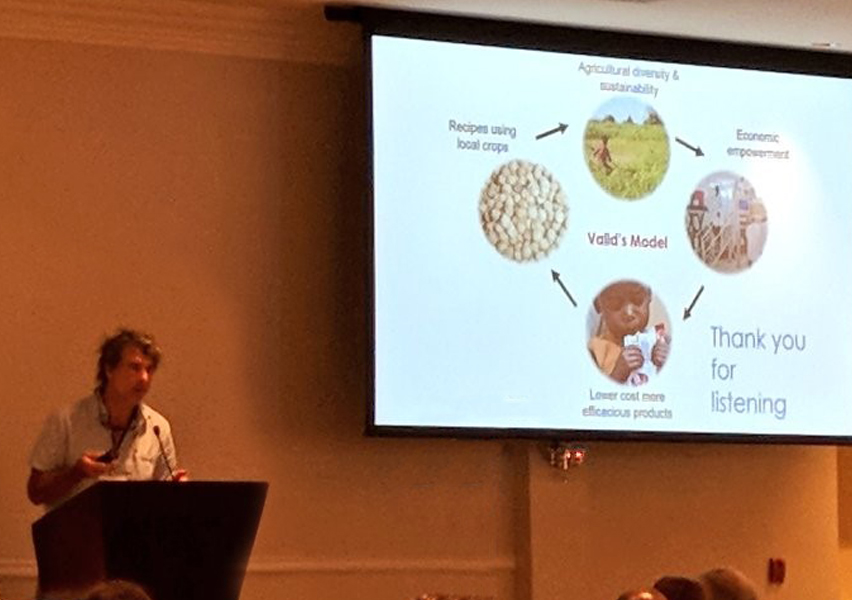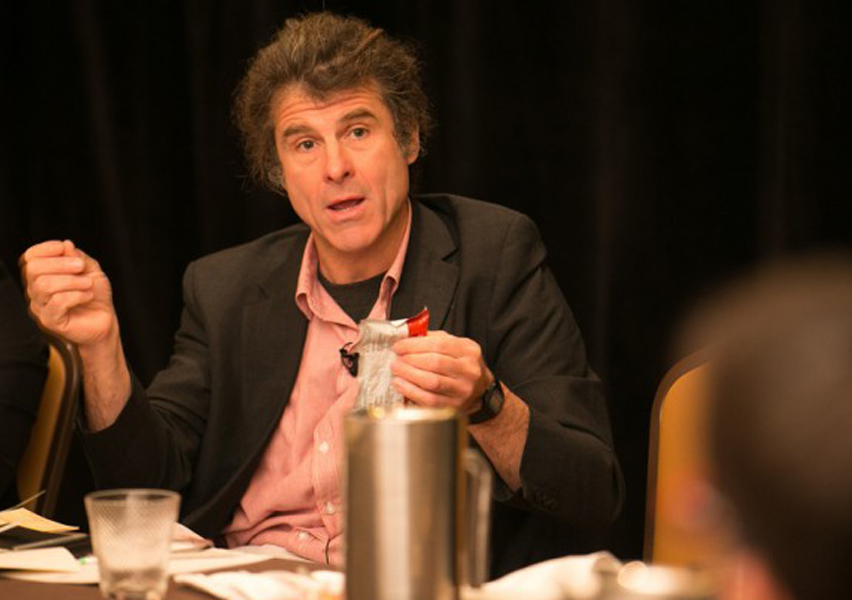Who we are: Vision, Mission, Values | Our Story | Valid’s Team | Partners | Social impact business | How we are funded | Awards
Our Story
VALID Nutrition was set up in 2005 by Steve Collins – a medical doctor and world renowned expert on nutrition who has spent most of his working life in the frontline of famine and malnutrition relief.
In partnership with Concern Worldwide, Steve pioneered the development of Community-based Management of Acute Malnutrition (CMAM) – a model of care to treat acute malnutrition (starvation) that moved away from the traditional and low coverage inpatient/hospital model, to treating people in their homes with the support of local clinics and the use of Ready-to-Use Therapeutic Foods (RUTF). These are highly fortified nutritional pastes designed to treat starvation.
CMAM: As well as revolutionising access to care, CMAM has dramatically improved the coverage and therefore impact of care provided to the client.
CMAM was endorsed in 2007 by the World Health Organisation, the World Food Programme, the United Nations Children Fund and the UN Standing Committee on Nutrition as the recommended paradigm for treating starvation. Since then, treatment coverage has increased from around 5% to over 70%; with vastly improved cure rates and cost effectiveness; and death rates cut fivefold (Collins et al, 2006). The first CMAM programmes began in Malawi, Sudan and Ethiopia and they have now reached a total of 65 countries. In 2018, 5.2 million children received life-saving treatment through CMAM programmes (State of Acute Malnutrition, 2020).
The stunning success of CMAM has created a mass market for RUTF given that the product is central to the new approach. Realising the potential for this new market to not only treat, but also prevent malnutrition, Steve established a factory in Malawi – with the aim of manufacturing affordable and highly nutritious foods exclusively in developing countries, for all those who need them.
This social enterprise pioneered the concept of local manufacturing in Africa, operating successfully for over a decade. Regrettably, the Covid-19 pandemic struck just prior to commencement of an upgrade and expansion project for the factory. This circumstance then triggered a prolonged cessation of plans and ultimately a difficult decision to close the factory and wind-down the local business. Despite this unforeseen circumstance, VALID was already well advanced in developing a range of new Ready-to-Use Food (RUF) recipes to tackle various forms of malnutrition (such as chronic malnutrition), made exclusively from locally available crops, thereby reducing the product cost and consequently, the treatment cost per child. Local sourcing brings major advantages in terms of food security and critically, a developmental multiplier effect to local economies. The VALID Nutrition Charity (which was a shareholder in Valid Nutrition Malawi), will continue with its evidence-based R&D activity and advocacy to develop and reform the market so that choice, competition and therefore provision of RUTF are enhanced – and more children can be treated. Our focus on plant-based food technology innovation will intensify and remains core to this effort as does the better integration of treatment with prevention.

Dr Steve Collins reflects on the opportunities and problems associated with the USD$250 million contribution announced by Administrator, Samantha Power of USAID – a positive catalyst for change?

VALID commissioned and achieved peer-review of a professional report to quantify objectively the overall climate impact profile of the amino-acid enhanced, plant-based RUTF recipe. It has found that the overall global warming potential impacts of the plant-based RUTF recipe are 47%-52% less than the milk-peanut based recipe.

Dr Steve Collins gives a hugely informative and enlightened interview to ENN podcast while discussing his candid Reflections on the UN Global Action Plan on Wasting.
